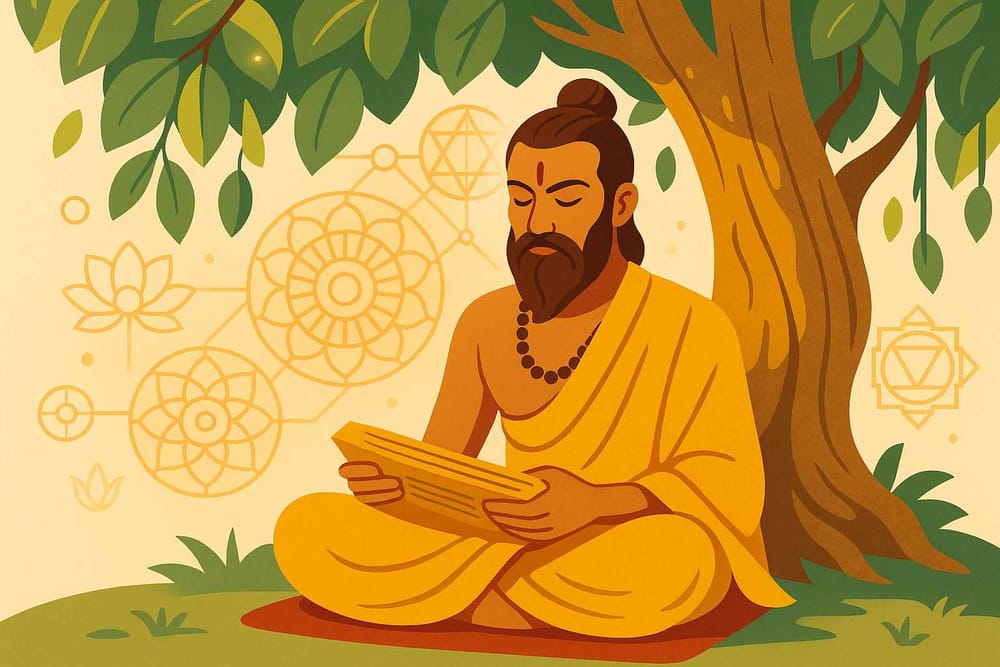
Understanding Johiya- Explores Significance in Indian Logic
Have you ever found yourself in a heartfelt discussion with family, perhaps about traditions or beliefs, where the conversation seems to wander without reaching a clear understanding? It happens to all of us. In those moments, we aren't just looking to be 'right'; we're searching for clarity, a way to connect our thoughts logically while keeping our respect and emotions intact. It's a beautiful struggle, and funnily enough, our ancestors had a framework for this very thing. They called it Johiya, an incredible approach to reasoning that is deeply woven into the fabric of Indian philosophy.
This isn't some dusty, forgotten concept. Johiya is like a family heirloom of wisdom, a guide that teaches us not just how to argue, but how to understand. It’s a gentle reminder that the pursuit of truth requires both a sharp mind and an open heart.
So, What Exactly is This 'Johiya' We Speak Of?
At its core, Johiya is a methodical principle from the Nyaya school of Indian philosophy. Think of it not as a rigid set of rules, but as a recipe for clear thinking. It beautifully combines two powerful ingredients: Tarka (the careful analysis and questioning of an idea) and Anumana (the wisdom of drawing a conclusion based on evidence, or inference).
Imagine you are trying to understand a complex spiritual concept. Tarka is the process of asking questions: "What does this mean? Why is it important? What are the other perspectives?" It’s about looking at an idea from all angles. Anumana, on the other hand, is like seeing smoke rising from behind a hill and understanding that there must be a fire. It’s about connecting the dots logically. Johiya teaches us to use both these tools together to build a strong and stable understanding, ensuring our beliefs aren't built on shaky ground.
A Journey Through Time: How Johiya Became Our Intellectual Heritage
The story of Johiya begins centuries ago, with the foundational texts of Indian logic like the Nyaya Sutras by the great sage Gautama. But this wisdom wasn't locked away in a book. It was a living, breathing tradition, passed down and refined by brilliant thinkers like Vatsyayana and Uddyotakara. They saw Johiya as the cornerstone of epistemology—the philosophy of how we know what we know.
What’s truly fascinating is that the principles of Johiya weren't confined to just one school of thought. Its essence travelled and found a home in other philosophical traditions too, like Vaisheshika and even Jain logic. This shows just how universal and adaptable this framework is, reflecting the beautiful "unity in diversity" that defines Indian intellectual culture. It became a shared language for seekers of truth, no matter their path. This deep respect for structured thinking is a cornerstone of our heritage. You can explore more about the rich philosophies behind many Hindu rituals and traditions here.
More Than Just Rules: The True Spirit of Johiya in Action
Many people wonder how Johiya actually shapes our logical thinking. Its true power lies in its emphasis on Pramanas, or the valid means of acquiring knowledge. Johiya encourages us to always ask, "How do I know this is true? What is the source of my belief?" It pushes us to base our conclusions on sound reasoning rather than mere assumptions.
In the famous debates of ancient India, Johiya was crucial. It wasn't about shouting the loudest; it was about presenting a clear, logical argument. By identifying fallacies in reasoning, it helped scholars avoid errors in judgment. For example, if someone claimed that a ritual works simply because "it has always been done that way," a practitioner of Johiya would gently probe deeper, seeking the underlying reason and evidence. This approach ensured that discussions were always fair, respectful, and aimed at uncovering a deeper truth.
Bringing Ancient Wisdom into Our Modern Lives
You might be thinking, "This is all very interesting, but how does it apply to my life today?" The principles of Johiya are more relevant now than ever. In our digital age, we are flooded with information. Johiya’s emphasis on critical thinking and verifying sources acts as a powerful filter, helping us separate truth from noise.
Whether you're making a big decision at work, trying to resolve a family disagreement, or even exploring your own spiritual path, Johiya offers a roadmap. It teaches us to define our thoughts clearly, to listen to others with an analytical yet open mind, and to build our arguments on a foundation of respect and evidence. When we engage in spiritual discussions, this method aids in clarifying complex concepts, helping us move from doubt to devotion with understanding. This journey of using logic to understand faith is a beautiful part of the Jnana Marga, the path of knowledge so wonderfully explained in our scriptures.
Ultimately, Johiya is a bridge between our ancient heritage and our modern challenges. It reminds us that clarity of thought and respect for others are timeless values. By embracing its spirit, we not only honour our intellectual roots but also equip ourselves to navigate the complexities of today's world with grace and wisdom.
Your Gateway to Indian Wisdom with Bhaktilipi
Here at Bhaktilipi, we believe that understanding concepts like Johiya is a beautiful way to connect with our roots. We are dedicated to sharing timeless devotional stories, rituals, and philosophies in a way that resonates with your life today. We invite you to continue this journey of discovery with us.
Stay connected and enrich your understanding by subscribing to our YouTube channel for insightful videos, following us on Instagram for daily inspiration, and joining our wonderful community on Facebook. Let’s explore, preserve, and celebrate our profound heritage together.
A passionate group of people dedicated to preserving India's knowledge of Dharma, Karma, and Bhakti for ourselves and the world 🙏.
